
Iron supplements are an integral part of the treatment for iron-deficiency anemia. They are prescribed to people of all ages affected by the mentioned type of anemia but the dose of the supplements varies among different age groups. It is essential to emphasize that these supplements are taken until the number of red blood cells reaches the normal range and they should be taken for an additional period of time until the reservoirs of iron in the body are filled. The doctor decides on how long the treatment should last and monitors patients throughout the therapy.
Iron Deficiency in Children
Iron is one of the most crucial minerals for human body. It is the major component of erythrocytes participating in the synthesis of hemoglobin, the carrier of oxygen. With sufficient amounts of hemoglobin all the tissues in the body remain well supplied with this vital substance. Lack of iron is an underlying cause of iron-deficiency anemia and all the accompanying health issues.
Many times this type of anemia develops as a result of inadequate intake of iron. This is actually the most common underlying cause of iron-deficiency anemia in childhood. When it comes to the United States the number of children suffering from iron-deficiency anemia has significantly fallen since 30 years ago thanks to iron-fortified infant formulas and cereals.
The anemia does not develop rapidly. Namely, initially the body exploits the reservoirs of iron and once they are completely emptied, the body stops producing sufficient number of red blood cells which soon precipitates characteristic symptoms and signs of the disease.
Apart from inadequate intake of iron via food, iron-deficiency anemia may additionally develop due to poor absorption of iron by the body (to be more precise by the intestine) or current blood loss. Periods of rapid growth are also sometimes accompanied by iron-deficiency anemia, which explains why some children may be affected by the disease.
Still in the majority of cases this type of anemia definitely develops as a result of a diet low in iron, especially when infants, toddlers and teenagers are concerned. Children may be spoiled and refuse to consume all foods sticking to those that do not contain sufficient amounts of iron. What is more, poverty is another explanation why so many children end up with iron-deficiency anemia. Infancy and adolescence are two periods of each and every individual's life characterized by higher demands for iron and other minerals because the body grows and develops rapidly. Even when diet contains plenty of iron, some kids may develop anemia.
And finally, lack of iron makes people susceptible to lead poisoning because when the body does not have enough iron it is prone to absorption of higher amounts of lead, especially if one is living in old buildings. Lead poisoning is highly detrimental for the entire body, particularly the brain.
Are There Any Side Effects from Too Much Iron?
Since many times iron-deficiency anemia results from poor diet, initial step is to make dietary changes introducing plenty of food rich in iron. It is essential not to give a child multivitamins because they are not suitable for children. Instead consult a well experienced pediatrician who will prescribe a separate daily iron supplement. The dose is specifically determined paying attention not to be exceeded. Too much iron may be toxic and poisonous for the child.
Best effects regarding absorption are achieved after taking iron on an empty stomach. Children who experience stomach upset or simply do not feel comfortable taking iron alone may take it with small amounts of food.
It is of utmost importance never to take iron together with certain foods which bind to the mineral and prevent its absorption. For instance, caffeinated beverages (tea or coffee), eggs, milk, spinach, cheese or yoghurt and whole grains all prevent iron from being absorbed. On the other hand, vitamin C may boost iron absorption and one is recommended to consume a lot of food rich in it.
As far as side effects of therapy with iron are concerned, the most commonly reported ones are diarrhea or constipation. Abdominal discomfort affecting the epigastrium is another frequent complaint of many patients. Practically all side effects are dose related. The higher the dose is the greater are the chances that side effects will actually occur. Orally taken iron supplements tend to make the stool look dark or even become black. This is not a reason for one to worry. What is more, if iron supplements are taken in a liquid form, they may cause reversible teeth discoloration. Also, skin discoloration may affect individuals who receive iron injections while the very process of injecting the solution may be rather painful. Patients who are prescribed iron injection are not supposed to take additional supplements per os.
In the end, people who have confirmed hypersensitivity to iron should not undergo this treatment. Hypersensitivity reactions are extremely horrible if the supplement is administered intravenously. After a month of treatment all patients routinely undergo repeated blood tests which measure the level of hematocrit and hemoglobin. The treatment continues until the level of these blood parameters reaches optimal range.


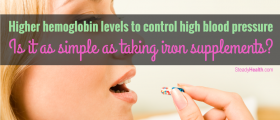

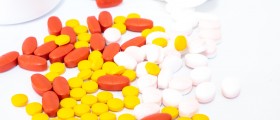
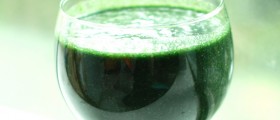
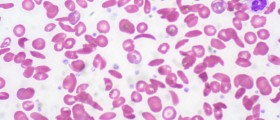
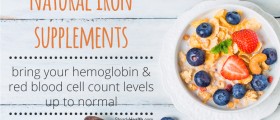
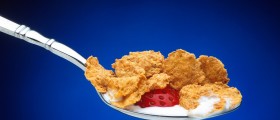


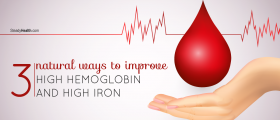

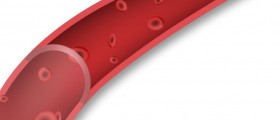

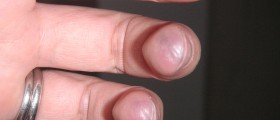

Your thoughts on this
Loading...